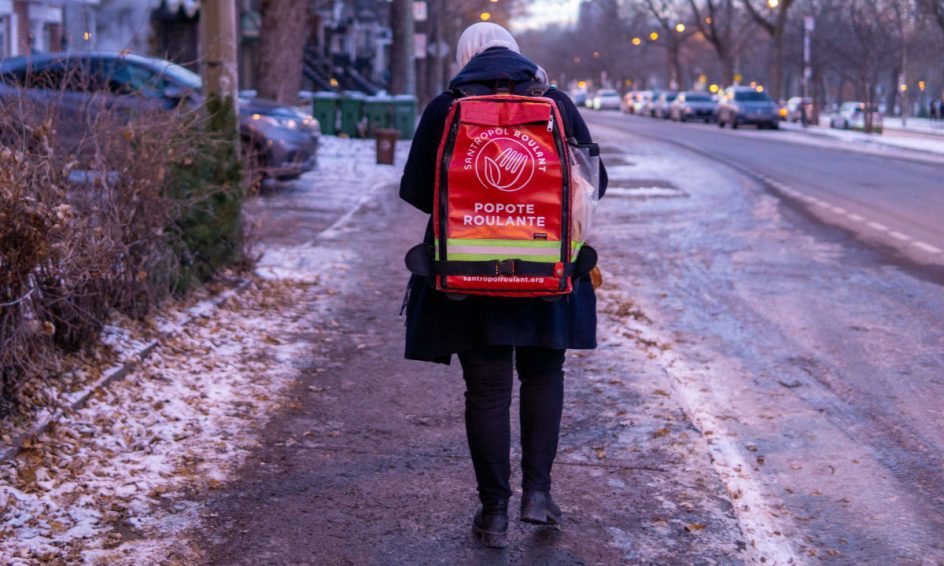Santropol Roulant will have delivered 27,000 meals in 2021. That’s the same as in 2020, its other record year.
120 Meals per Day
The capacity of our Meals on Wheels service is determined by two criteria:
1- the maximum number of meals we can prepare each day with our current kitchen resources = 120 meals;
2- the number of clients who receive meals by delivery route, so as not to overload the volunteers who make the deliveries = approximately 14 meals per backpack.
End of services are often the result of improvements or deterioration in health conditions. These are difficult variables to anticipate. The number of new places available in the service is therefore uncertain. When we cannot accommodate new people because of a lack of space, we do not take a waiting list. It is this policy position that we wish to clarify and share with you this week.
Referral System and Eligibility Criteria
In order to receive a Meals on Wheels service, we ask that our clients be referred by a health professional and meet the eligibility criteria of our service:
- Living with a loss of mobility or autonomy
- Living a situation of social isolation
Age is not a factor for receiving meals from our Meals-on-Wheels service. However, 80% of our clients are over 60 years old.
By requesting a referral from a health professional, the assessment of the client’s needs is done by professional health services and not by our organization.
This allows us to outsource an assessment that we do not have the capacity to do ourselves due to lack of budget, expertise or coverage.
It also allows us to ensure that the people referred to us are surrounded by a medical network that we can contact in case of need – the Meals-on-Wheels service is not an intervention service.
Why We Don’t Have A Waiting List
The first reason is that the management of health files is a mandate of the Ministry and not a responsibility of community organizations. Food health is one of the components of health records.
The second, and perhaps most important, reason is that not having a waiting list ensures that a solution that meets the immediate food needs of the person referred continues to be sought by the person in charge of the file.
Often referrals are made at crucial times in the clients’ lives, such as when they are discharged from hospital, when the assurance of having a meal delivery service is paramount to their return home.
Finally, the decision not to take a waiting list also stems from Santropol Roulant’s position as an active and supportive member of the Coalition for Community Living (Comaco), whose mission is to advocate for seniors’ rights with a particular focus on improving home care and support services.
Message to the Government
To put this into context, we should remember that a paradigm shift called the “virage ambulatoire” (shift to ambulatory care) took place in Quebec in the 1990s in the health sector.
This led to a reorganisation of medical infrastructures to favour care in the home rather than in institutions. However, this shift was not accompanied by the necessary resources to meet the needs of the elderly and their families. There is still much room for improvement in the home care services currently provided by the provincial government.
The implementation of a waiting list would result in a senior referred to our service appearing on the health system’s balance sheet as a care receiver (with home care needs met). In order for the home care authorities to demand additional resources, it is important that we pay attention to our contribution to the statistics.
This advocacy is another way that the Roulant cares for its community, in addition to meals, events, and all of our outreach. It should be remembered that home care, even if it were to be increased, is significantly less expensive for society and is also most often the preference of patients. We therefore plan to maintain these positions until the role and practices of government, complementary to that of the community, evolve in favour of better service provision. In the meantime, we invite you to talk to others and form your own opinion.
Do you have a comment or an opinion? Please let us know at feedback@santropolroulant.org.

